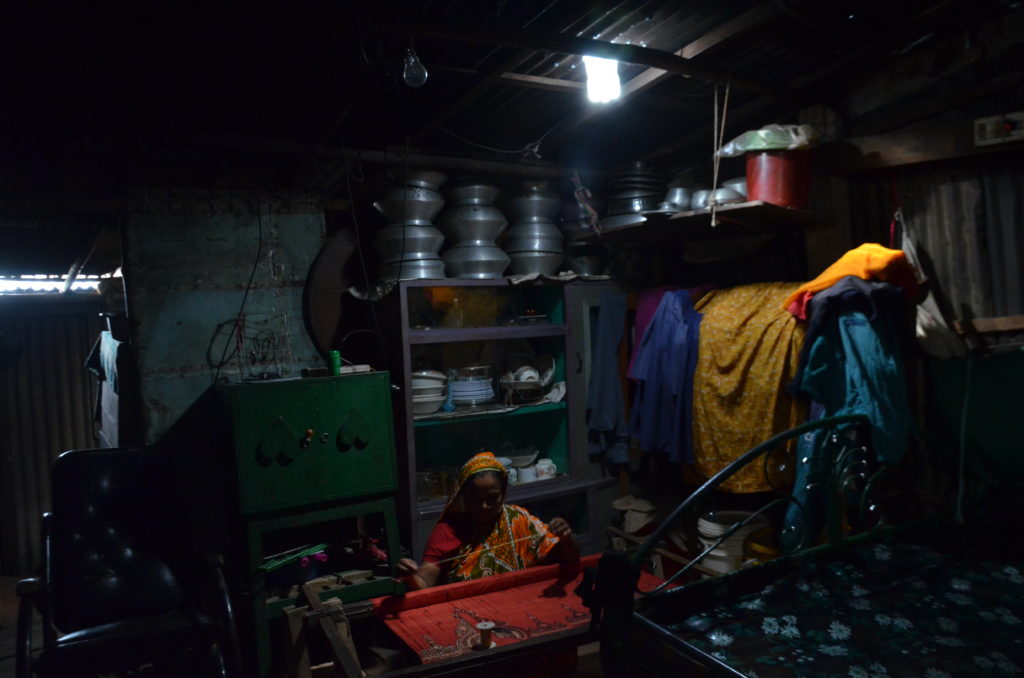CHANGE implemented a year-long project (2013-2014) at the Baoneabadh slum of Mirpur, Dhaka to understand the energy distribution dynamics, poor infrastructure and electricity loss and the potentiality of natural light improvement initiatives to conserve energy with the technical guidance and financial assistance of Sustainable Energy for Development (SED) Programme, GIZ. The main objective of the pilot project was to introduce locally made skylights from recycled PET bottles in slum households to assess its feasibility and identify socio-economic impacts. This project not only aimed to reduce the misuse of electricity and CO2 emissions but also ensure proper lighting facilities for the underprivileged people.
Botol Bati (low cost skylight) is made out of chlorine mixed water, PET bottle, corrugated tin frame (1×1 ft.) and sealed with silicon glue which can refract sunlight equivalent to a 60 watt incandescent bulb. Under this project, bottle lights have been installed in 250 settlements serving around 1250 people, reducing 8.24 MW/ monthly electricity and 424 kg/ monthly CO2 emissions.
Project Impacts:
- Energy Conservation: The study revealed that, upon installing of the SBLs, approximately 83.3% (N=250) of the Baoneabadh household recipients reduced their daytime reliance on electric bulbs. Three years operational project saved an estimated 178 MWh electricity.
- Carbon emission reduction: For the case of Bangladesh, per KWh electricity generation emits 513 grams CO2 (IEA, 2012). For 178 MWh electricity conservation, the project has reduced around 91 MT CO2 emissions in three years.
- Ensuring continuous lighting: In summer, particularly the slum areas face frequent load-shedding for 2-3 hours disrupting household chores and informal business operations. SBL installation has generated significant evidences which proves its effectiveness and usefulness in households and cottage settlements.
- Socio-Economic Benefits: The socio-economic benefits of SBLs are considerable. Greater visibility in homes and businesses has health and safety benefits, and allows for domestic activities such as cleaning and cooking to take place more easily. Replacing the use of light bulbs with SBLs also helped to reduce room temperature, typically by almost 1.5 degree Celsius, promoting a more comfortable interior environment. Baoneabadh slum residents who own small businesses have particularly benefited for the SBLs as many of them previously depended on using electric bulbs during day time. This system helped them to reduce their usage of electricity which reduced their electricity bill by an estimated USD 2.57-3.85 per month. In practice, fewer bulbs would also need to be purchased to replace. This releases money for other uses such as paying for children’s educational needs and allowing the completion of school homework in the dwelling.


Hi, this is a comment.
To get started with moderating, editing, and deleting comments, please visit the Comments screen in the dashboard.
Commenter avatars come from Gravatar.